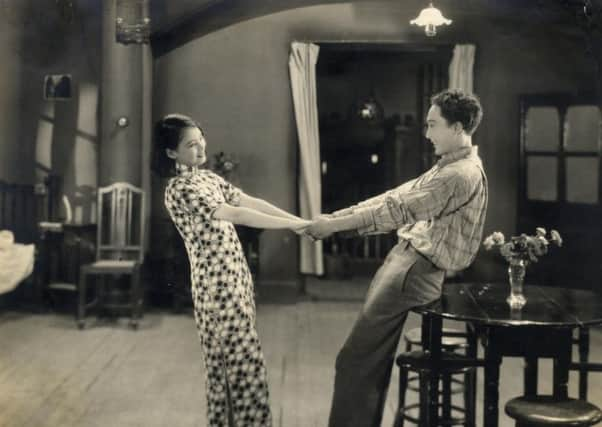Film festival review: Hippodrome Silent Film Festival, Bo'ness


Now in its eighth year, it’s an increasingly major national event that draws a substantial crowd – queues snaked their way around Bo’ness’s charming 1912 Hippodrome cinema – and also unearths rare gems of silent cinema, giving them whole new, often provocative, leases of life with fresh musical scores. It’s also forging and consolidating major collaborations, not only with musicians, but also with international partners.
Just take Saturday’s Striving (****) for example. A Chinese film from 1932 almost certainly getting its very first European screening, it provided a fascinating glimpse into a proudly nationalist pre-Communist China responding to Japanese aggression. Its score from Stephen Horne on piano, flute and accordion and Frank Bockius on percussion, however, responded elegantly to the tender love story at the film’s heart.
Advertisement
Hide AdFrom China to Germany, and the new score commissioned by the festival from jazz bassist and composer Alois Kott for 1923 expressionist drama The Treasure (****) couldn’t have been more different. To complement director GW Pabst’s almost Chaucerian morality tale of treasure hidden in a family bell foundry, Kott used bass and laptop to create loops within loops, generating bewilderingly complex bell-suffused soundscapes whose obsessive repetitions only mirrored the characters’ neurotic search for the secret booty.
There was another abrupt change in another HippFest commission, Scottish guitarist Graeme Stephen’s rippling, sensuous score for Wallace Worsley’s 1920 proto-horror flick The Penalty (*****), starring Lon Chaney as a double-amputee crime lord intent on looting San Francisco for his evil ends. Stephen’s luscious, lyrical music – for the velvety combination of himself on guitar and Pete Harvey on cello – emphasised the film’s underlying melancholy over its Grand Guignol, however, conjuring remarkably rich, subtle textures.
More horror – well, kind of – came in the late-night treat, the downright bonkers 1929 Seven Footprints to Satan (****), in which a young society couple are kidnapped in a spooky mansion by the increasingly ludicrous members of a Satanic cult – gorillas, dwarves, sinister orientals, femmes fatales, the list goes on. It gleefully made no sense at all, but in her vigorous, riotous score, HippFest regular Jane Gardner (on piano, with Roddy Long on violin) really joined in the preposterous fun. It was a hoot, but never sarcastic – and a gloriously madcap end to a day demonstrating the full variety of HippFest’s ambitions.